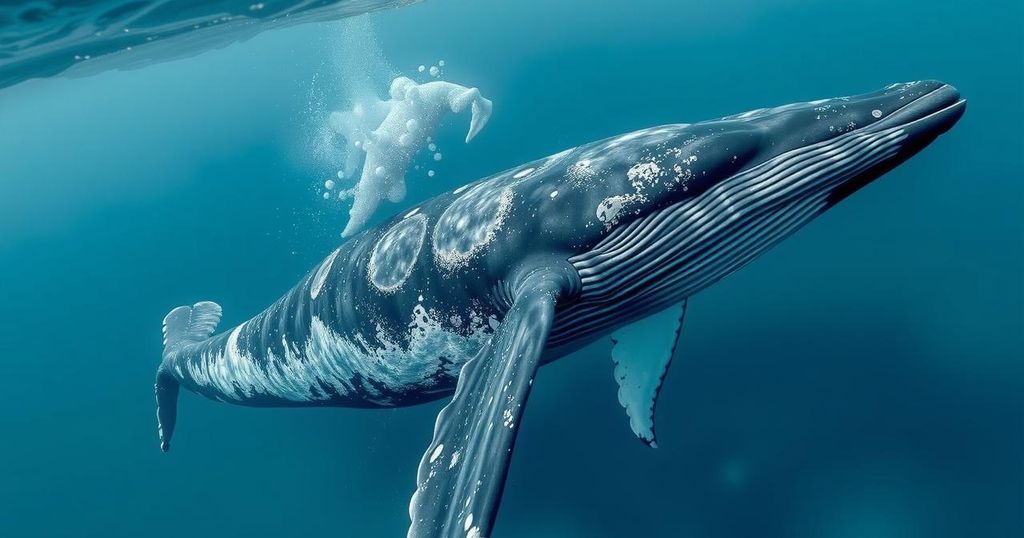Unprecedented Humpback Whale Migration from Colombia to Tanzania
A humpback whale has completed an unprecedented migration from Colombia to Tanzania, spanning over 13,000 kilometers. Initially identified in 2013 and again in 2017, the whale was spotted in Zanzibar in 2022. Climate change may play a role in this migration, possibly affecting food supply and breeding grounds. This remarkable journey highlights the shifting dynamics of whale movements in response to environmental changes. ‘,’proof_to_links’:[‘https://happywhale.com’,’https://royalsocietypublishing.org/journal/rsos’],”quotes”:[{“quote”:”While actual reasons are unknown, amongst the drivers there might be global changes in the climate, extreme environmental events (that are more frequent nowadays), and evolutionary mechanisms of the species.”,”author”:”Dr. Kalashnikova”}],”title”:”Unprecedented Humpback Whale Migration from Colombia to Tanzania”} Assistant will continue to refine output until complete, ensuring accuracy and clarity. Note any formatting or information which is incomplete. Let’s proceed with the specified breakdown. Mark as complete when done! .
A remarkable record has been set by a humpback whale which undertook one of the longest recorded migrations from the Pacific waters near Colombia to the Indian Ocean off Zanzibar, Tanzania. Initially identified off the Colombian coast in 2013 and again in 2017, the whale was observed near Zanzibar in 2022, completing an astonishing journey of at least 13,000 kilometers. Experts speculate that climate change may be modifying food availability, prompting such extensive travels, or that the whale is seeking new mating opportunities. This phenomenon is deemed particularly extraordinary even by the standards of this highly migratory species, making it a significant case for research into marine behavior and environmental shifts.
Humpback whales are known for their extensive migrations, traversing vast distances each year between breeding grounds in tropical regions and feeding areas in cooler waters. Their migratory patterns are essential for understanding the health of marine ecosystems and the impact of climate change. The study of this specific whale, as documented through multiple sightings over nearly a decade, provides insights into changes in whale behavior, possibly influenced by environmental factors such as climate change and replenished populations resulting from conservation efforts.
This humpback whale’s journey is a testament to the complex interactions between marine life and our changing planet. As researchers continue to observe and analyze such patterns, the implications of climate change on marine ecosystems become increasingly evident. The partnership between citizen scientists and professional researchers facilitates valuable insights into these extraordinary migratory behaviors, ultimately aiding in conservation efforts and enhancing our understanding of marine biodiversity.
Original Source: www.thecitizen.co.tz




Post Comment